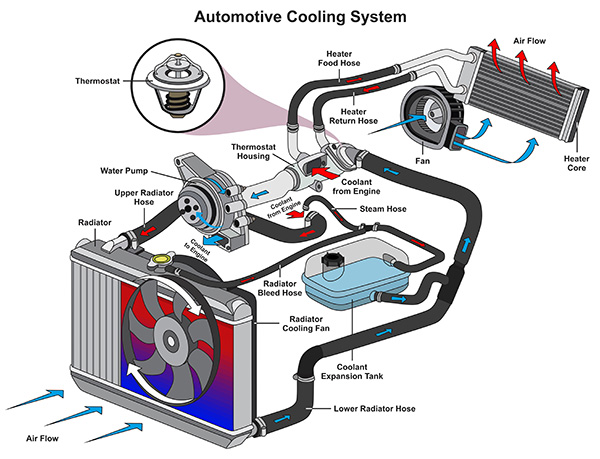
As temperatures soar during the summer months, your vehicle's engine can bear the brunt of the heat. Preventing engine overheating is crucial for maintaining optimal performance and avoiding costly repairs. Discover simple yet effective tips to keep your engine cool and your summer drives worry-free.
1. Regularly Check Coolant Levels
Coolant, also known as antifreeze, is vital in regulating engine temperature. Ensure your coolant levels are sufficient and topped up to the recommended levels. Consider flushing and replacing the coolant according to the manufacturer's guidelines to prevent coolant degradation and maintain cooling efficiency.
2. Monitor Radiator Condition
The radiator is your engine's cooling instrument, responsible for dissipating excess heat. Regularly inspect the radiator for any signs of damage, such as leaks or corrosion, and promptly address any issues. Keep the radiator clean and debris-free, allowing optimal airflow for efficient heat exchange.
3. Check Engine Oil:
Engine oil not only lubricates engine components but also helps dissipate heat. Ensure your engine oil is clean and at the correct level to prevent friction-induced heat buildup. Consider using high-quality synthetic oil with superior heat resistance for added engine protection during the hot summer months.
4. Maintain Proper Engine Function
A well-maintained engine operates more efficiently, generating less heat and reducing the risk of overheating. Regularly schedule tune-ups and inspections to address any potential issues, such as faulty thermostats or malfunctioning cooling fans, before they escalate into major problems.
5. Minimize Idling and Heavy Loads
Excessive idling and heavy loads place unnecessary strain on your engine, leading to increased heat generation. To reduce the workload on your engine and prevent overheating, minimize idling time and avoid overloading your vehicle. When possible, park in shaded areas to mitigate heat absorption.
Questions Frequently Asked by Customers
How often should I check my coolant levels during the summer months?
Answer: Check coolant levels monthly and top up as needed for optimal engine cooling.
What are the signs of an overheating engine, and how should I respond?
Answer: Look for steam, a rising temperature gauge, or a burning smell. If your engine overheats, safely pull over, turn off the engine, and let it cool before assessing.
Can using the air conditioning excessively lead to engine overheating?
Answer: While AC adds load to the engine, modern vehicles handle it. But minimize idling and maintain the cooling system to prevent strain.
Stay cool this summer with Inmon Automotive. Our experienced technicians are here to keep your engine running smoothly and efficiently. Contact us today to schedule your cooling system check-up and enjoy a stress-free driving experience.